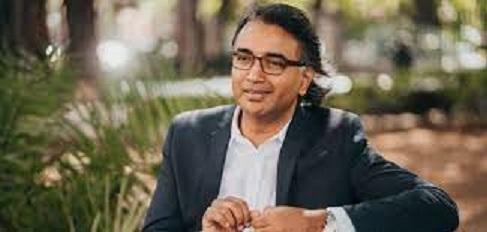Africa-Press – Mauritius. The matter of the ‘survey’ at the SAFE Baie Jacotet cable landing station is very complex. vital link in a particular geopolitical context. How do you read this case three weeks after the revelations of the former CEO of Mauritius Telecom?
Rabin Bhujun: You are right to say that we see “a little more clearly” and I insist on the “little”. Truth be told, we are still in a streak of communication skillfully led so far by Sherry Singh and her circle of supporters. Let’s recognize the talent of the former boss of Mauritius Telecom for storytelling.
There was the timing of his resignation; his first interview with Radio Plus which set fire to the powder, his elements of language [“third party”, “sniffing”] widely taken up as such in the press and by politicians; then the failed interview of the express which led him to do a catch-up exercise again at Radio Plus.
It is obvious that it was Sherry Singh who provided, directly or indirectly, to the journalists the various pieces of the puzzle which we have been talking about for three weeks. We are therefore in its communication phase – going beyond the “narrative” – which suits it.
We must hasten to clarify that we are in the presence of pieces of the puzzle but certainly not in possession of enough elements to understand all the ins and outs of this soap opera which promises to be long.
* Precisely, what is there beyond this “narrative” of which you speak? Of course, there is geopolitics.
A local and political “narrative” is already well established on this subject: It presents Narendra Modi’s India as a colonizing and hegemonic power with regard to Mauritius.
Sherry Singh rightly chose to build his version around this Indian threat by presenting Pravind Jugnauth as a vassal of the Prime Minister of the Great Peninsula.
This premise already convinces many Mauritians, so they had no trouble concluding that the Indians are spying on us on their own behalf or on behalf of the Mauritian government.
It is, however, a simplistic picture that does not take into account the fact that we are in a region with considerable geopolitical and geostrategic stakes.
The Indian Ocean is an era of influence and conquest in which India and China engage in bitter rivalry. However, China has an asset that India does not have: its telecommunications and networking giants.
One of them, Huawei, has provided a very large share of telecom solutions to private and public operators in Mauritius. Mauritius Telecom is very heavily dependent on this Chinese giant for its daily operation.
In addition, Huawei is also the backbone of our national surveillance system: Safe City. This technological entryism, real – and dangerous – soft power in which China excels, has been identified as a major threat to their national security by many countries.
This has led the United Kingdom, Canada, Australia and even the USA to adopt a very aggressive line towards the Chinese telecom giants. This Monday, Rishi Sunak, who is seeking the post of leader of the British Conservative Party and therefore Prime Minister in Great Britain, made undiplomatic remarks with regard to China.
In a post on his LinkedIn page, he indicated his intention to “build a new international alliance of free nations to tackle Chinese cyber-threats and share best practice in technologysecurity” if he finds himself at 10 Downing Street.
* Where does Mauritius fit into all of this?
The Great Peninsula has objective allies who believe that China’s technological entryism is at the service of a China-Russia-Pakistan-North Korea axis.
In contrast, therefore, the India, USA, United Kingdom, Australia axis has formed its own network of allies. It is easy to imagine in which camp Maurice chose to line up.
Just as one can easily conclude that the head of government undoubtedly found himself faced with a request, from one or more members of this axis, for an audit to be carried out in order to assess the level of security of the entire telecom network in Mauritius from the moment the Safe cable touches land at Baie du Jacotet.
Finally, I am not surprised that the Prime Minister let an Indian team, external to Mauritius Telecom, conduct this audit. Better late than never, because he may have had to remember the very diplomatic “serious concerns” that were communicated several years ago about the threat of technological entryism.
There was no reaction from the government at the time. It must be said that Huawei was then a “trusted partner” of Mauritius, to use the words spoken by Pravind Jugnauth during his visit to the Chinese giant in September 2018.
For More News And Analysis About Mauritius Follow Africa-Press







